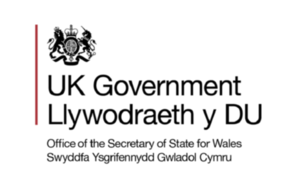Press release: Thousands more households boost work hours and earnings
Latest statistics show 140,000 Housing Benefit households and 9,900 Universal Credit households are no longer subject to the benefit cap
Latest statistics show 140,000 Housing Benefit households and 9,900 Universal Credit households are no longer subject to the benefit cap
Welfare reform shows success with record employment and more than 55,000 households moving off the benefit cap and into work.
Families across the UK are experiencing the wider benefits of moving into and progressing in work.
New figures released today (7 February 2019) by the Department for Work and Pensions show that thousands more benefits households are working more, boosting their earnings and are no longer subject to a benefit cap as a result. Other figures out this month show that UK employment is now at a record high.
According to today’s statistics, more than 55,000 households have either moved off the cap from Housing Benefit or Universal Credit by being exempt due to starting a job or increasing their hours or earnings.
Introduced in 2013, the benefit cap incentivises work, including part-time opportunities, as anyone eligible who moves into work and earns over a certain amount becomes exempt from the cap.
The policy also aims to transform families’ futures by showcasing the wider benefits of employment to younger generations. Those with working parents are more likely to achieve higher levels of educational attainment and move into work in adulthood. The latest figures show that at least 190,000 more children are living in a household that moved into work and off the benefit cap.
And this follows separate figures last quarter which reported the number of children living in workless households had fallen by more than 30% since 2010.
Justin Tomlinson, Minister for Family Support, Housing and Child Maintenance said:
It’s really encouraging that the number of people moving off the cap and into work continues to increase in the UK. Our changes to the welfare system have been instrumental in encouraging people to move into employment and improve their lives, while providing the right support for those who need it.
We know that children in working families perform better at school and families moving off the benefit cap are not only reaping the rewards of progressing in work, but are inspiring the next generation to fulfil their potential.
Regionally, the South East has the highest percentage of households under Housing Benefit moving off the benefit cap and into employment (43%).
The new statistics follow the news that the UK employment rate has increased to a new record high of 75.8%, making a difference to homes across the country as wages grow at their fastest rate in almost a decade.
Under the benefit cap, anyone eligible who moves into work and then earns enough for Working Tax Credit (or the equivalent under Universal Credit) becomes exempt.
The estimate of the number of children in households that were capped but went into work is for households that had their Housing Benefit capped only. It is calculated by multiplying the number of children in these households by the number of households. Households with more than 5 children are grouped together, so for this calculation we have assumed that there are 6 children in these households.
There are 140,000 Housing Benefit households that are no longer subject to the benefit cap, with 55,000 of these becoming exempt from the cap due to starting work or increasing their hours.
9,900 Universal Credit households are no longer subject to the cap with more than 2,400 now exempt due to increased earnings through employment since October 2016 .
The percentage of households under Housing Benefit moving off the benefit cap and into employment is calculated by taking the number of households with an open Working Tax Credit claim as a percentage of the total off flows for each region. These figures are available in Table 4 of the published ODS tables.
Media enquiries for this press release – 020 3267 5144
Follow DWP on:

This event is now fully booked – thank you for your interest.
On behalf of the RAF, the Defence and Security Accelerator (DASA) would like to invite members of Defence, industry and academia to attend an Air Command Innovation day taking place at High Wycombe on 28 February 2019.
The RAF will be informing delegates on the context of the future air environment capability and encouraging attendees to share ideas to help improve future operating and capability outcomes.
Senior Air personnel will be in attendance, with an opportunity for delegates to ask questions in an open forum. Workshops will be taking place in the afternoon, focusing on tackling specific Defence challenges within multi-domain operations.
Attendees will also be given the opportunity to inform the 2019 RAF Wargame (EAGLE WARRIOR 19) on next generation, novel and innovative ideas, concepts and capabilities which have the potential to change the way the RAF operates.
The RAF is particularly interested in engaging with organisations who have not worked with Defence before.
If you would like to attend this event, please register your interest here.
Please note, registration does not guarantee you a place. A confirmation email will be sent to you from the Defence and Security Accelerator confirming your attendance.
Registration for this event will close at midday, Monday 18 February 2019.
Alun Cairns visits Swansea to champion a new railway station at Felindre

Welsh Secretary Alun Cairns will meet Assembly Members, local councillors and members of the Swansea Business Forum today to formally open discussions on UK Government plans for a ‘West Wales Parkway’ railway station at the former Felindre steelworks site north of Swansea.
The idea of a new parkway-style station serving west Wales was in the Top 20 requests made by rail users during a recent consultation on the future of the Great Western franchise.
Now an independent study carried out by one of the UK’s leading transport experts has concluded that a new station would deliver major journey time savings for passengers travelling from west Wales to Cardiff of up to a quarter of an hour each way, by cutting the need to travel through the centre of Swansea.
The report by Professor Stuart Cole, Emeritus Professor of Transport at the University of South Wales indicates that the station would reduce congestion on the M4 and major roads by encouraging more commuters to travel by rail. The station would also provide improved connectivity in and out of Swansea and between communities across south west Wales including Llanelli, Ammanford and Gorseinon while protecting existing services to Swansea and Neath.
A new station for this region will be west Wales’ ticket to greater opportunity, through faster journey times and greater connectivity with other modes of public transport which will provide an attractive offer to investors and save commuters time on their journeys.
The Swansea Bay City Region is important to both the Welsh and UK economy and it’s by working together with the Welsh Government and local partners that we can maximise its potential. I look forward to hearing the views of those local business and authority leaders to hear how we can best deliver on their ambitious plans for the future.
Published 7 February 2019